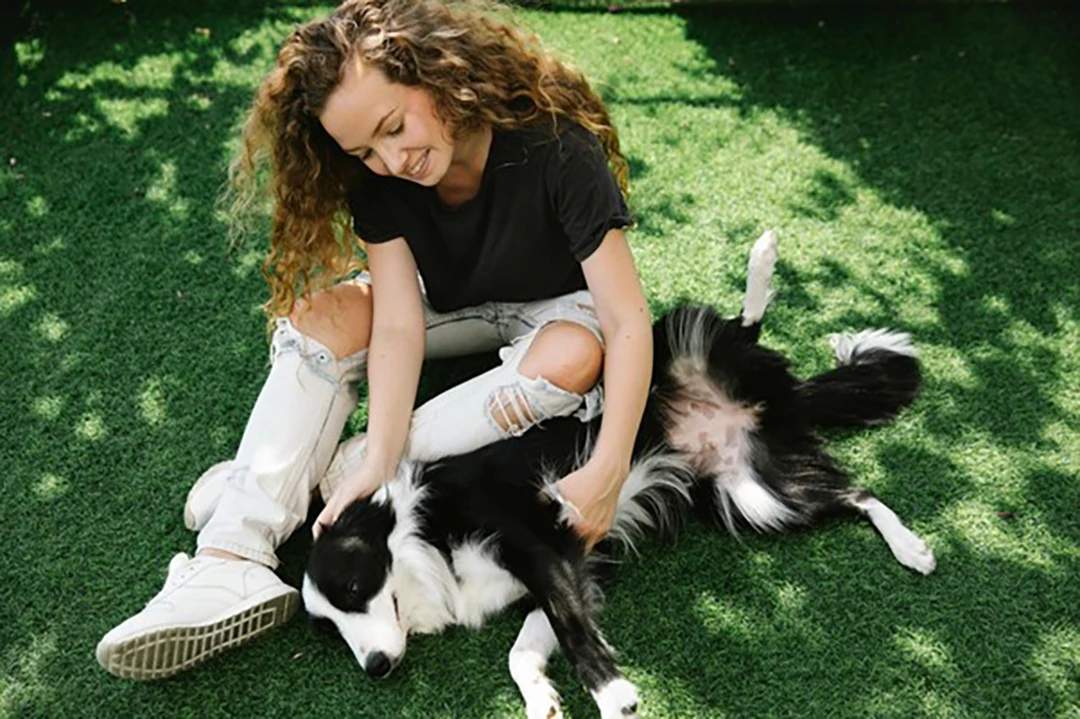
Pet owners need to grasp the importance of maintaining their pet’s skin and coat health to ensure their furry friends lead joyful and comfortable lives. This article explores common skin conditions, the vital role of grooming, and natural remedies to keep your pet’s skin and coat in optimal condition.
Common Skin Conditions in Pets
- Allergic Dermatitis: Pets, like humans, can suffer from allergies. Allergic dermatitis often stems from food allergies, environmental factors (like pollen, dust mites), or flea bites. Symptoms include itching, redness, and inflammation, which can lead to excessive scratching and secondary infections if neglected.
- Parasitic Infections: Fleas, ticks, and mites are common parasites that can ravage a pet’s skin. These pests induce intense itching and can transmit diseases. Signs of parasitic infections include visible parasites, excessive scratching, hair loss, and scabs.
- Fungal and Bacterial Infections: Fungal infections such as ringworm, and bacterial infections like pyoderma, can inflict significant discomfort and health issues. Symptoms include circular patches of hair loss, scaling, redness, and sometimes pus-filled lesions.
- Hot Spots: Acute moist dermatitis, or hot spots, are localized areas of inflamed and infected skin. They emerge suddenly and often result from an initial irritation that the pet exacerbates by licking, biting, or scratching. Hot spots can become quite painful and require immediate attention.
- Sebaceous Adenitis: Sebaceous adenitis is a rare inflammatory disease that targets the sebaceous glands, which secrete sebum to lubricate the skin and coat. The condition strikes more often in certain breeds, such as Standard Poodles, Akitas, and Samoyeds. Symptoms manifest as hair loss, scaling, and a dull, brittle coat. If ignored, sebaceous adenitis can trigger secondary infections and severe skin damage. Treatment typically involves anti-inflammatory medications and specialized shampoos to manage symptoms and rejuvenate the coat’s health.
- Dry Skin: Dry skin can arise from various factors, including environmental conditions, poor nutrition, or frequent bathing with harsh shampoos. Symptoms include flaking, dandruff, and itching. While often not serious, chronic dry skin can lead to discomfort and secondary infections.
The Importance of Grooming for Skin and Coat Health
Grooming is not just about keeping your pet looking good; it plays a crucial role in maintaining the health of their skin and coat. Regular grooming helps in the following ways:
- Removes Dirt and Debris: Brushing your pet’s coat regularly extricates dirt, debris, and loose hair, which can cause matting and irritation. A clean coat allows the skin to breathe and reduces the risk of infections.
- Distributes Natural Oils: Brushing helps spread the natural oils produced by the skin throughout the coat. These oils keep the fur shiny and moisturized, preventing dryness and flakiness.
- Detects Skin Issues Early: Regular grooming sessions allow you to inspect your pet’s skin closely. Early detection of abnormalities such as lumps, parasites, or infections can lead to prompt treatment and prevent more serious health problems.
- Reduces Shedding: While shedding is a natural process, regular brushing can help manage and lessen the amount of loose fur around your home. This is especially beneficial for pets with long or thick coats.
- Strengthens Bonding: Grooming is an excellent opportunity to bond with your pet. It provides a calming experience for them and strengthens the trust and relationship between you and your furry friend.
Natural Remedies for Skin Issues
Many pet owners prefer natural remedies to manage and treat minor skin issues. Here are some effective natural solutions:
- Coconut Oil: Coconut oil serves as a fantastic natural moisturizer and has antimicrobial properties. Applying a small amount to dry or irritated areas can soothe the skin and promote healing. It can also be added to your pet’s diet to enhance overall skin health from the inside out.
- Oatmeal Baths: Oatmeal is renowned for its soothing properties and is excellent for pets with itchy or irritated skin. You can grind plain oatmeal into a powder and mix it into your pet’s bath water. Let your pet soak for 10-15 minutes to relieve itching and inflammation.
- Apple Cider Vinegar: Apple cider vinegar possesses antifungal and antibacterial properties. Dilute it with an equal amount of water and use it as a spray on affected areas to combat infections and soothe irritated skin. Avoid using it on open wounds or raw skin.
- Aloe Vera: Aloe vera is well-known for its healing properties. Apply pure aloe vera gel to minor cuts, burns, or irritated skin to promote healing and reduce inflammation. Ensure the aloe vera product is free from added chemicals that could irritate your pet’s skin.
- Fish Oil: Fish oil supplements, rich in omega-3 fatty acids, can improve the health of your pet’s skin and coat. Adding fish oil to your pet’s diet can reduce inflammation, alleviate dry skin, and promote a shiny coat.
- Chamomile and Green Tea Soaks: Both chamomile and green tea possess anti-inflammatory properties. Brew the tea, let it cool, and use it as a rinse for irritated skin. This can help soothe the skin and promote healing.
Conclusion
Maintaining your pet’s skin and coat health is integral to their overall well-being. By understanding common skin conditions, the importance of regular grooming, and utilizing natural remedies, you can ensure your pet remains healthy and comfortable.
Regular grooming not only keeps your pet looking its best but also provides an opportunity for early detection of potential health issues. Natural remedies can offer effective solutions for minor skin problems, promoting healing and comfort.
With a bit of effort and care, you can create a nurturing environment where your pet’s skin and coat thrive, ensuring they lead a happy, healthy life filled with shiny, smooth fur and itch-free days.
Comments
comments